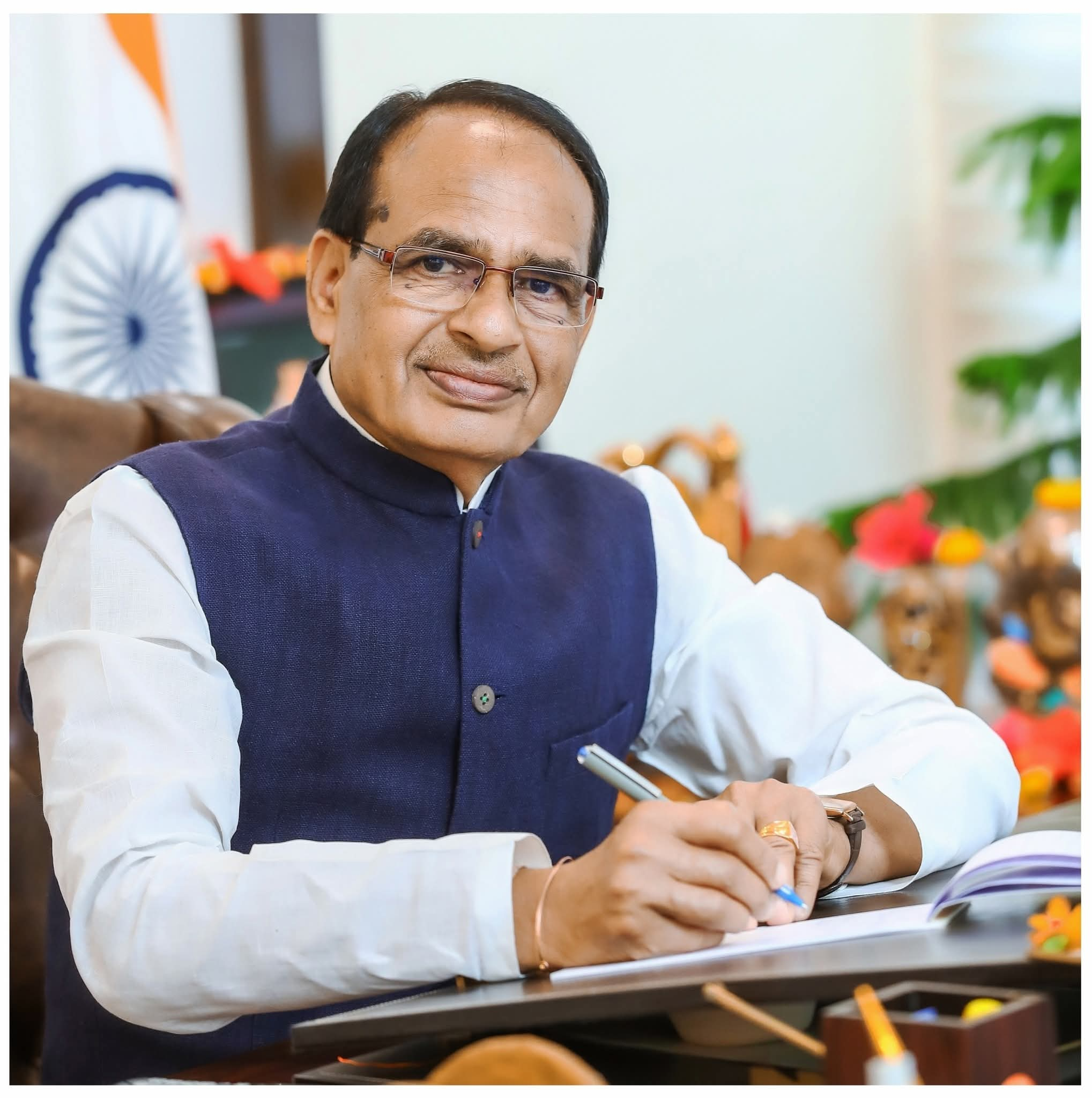

Cultural Awakening
Cultural Awakening
Reviving traditions and reimagining heritage through comprehensive cultural renaissance initiatives
Cultural Renaissance of Madhya Pradesh
Reviving Traditions, Reimagining Heritage
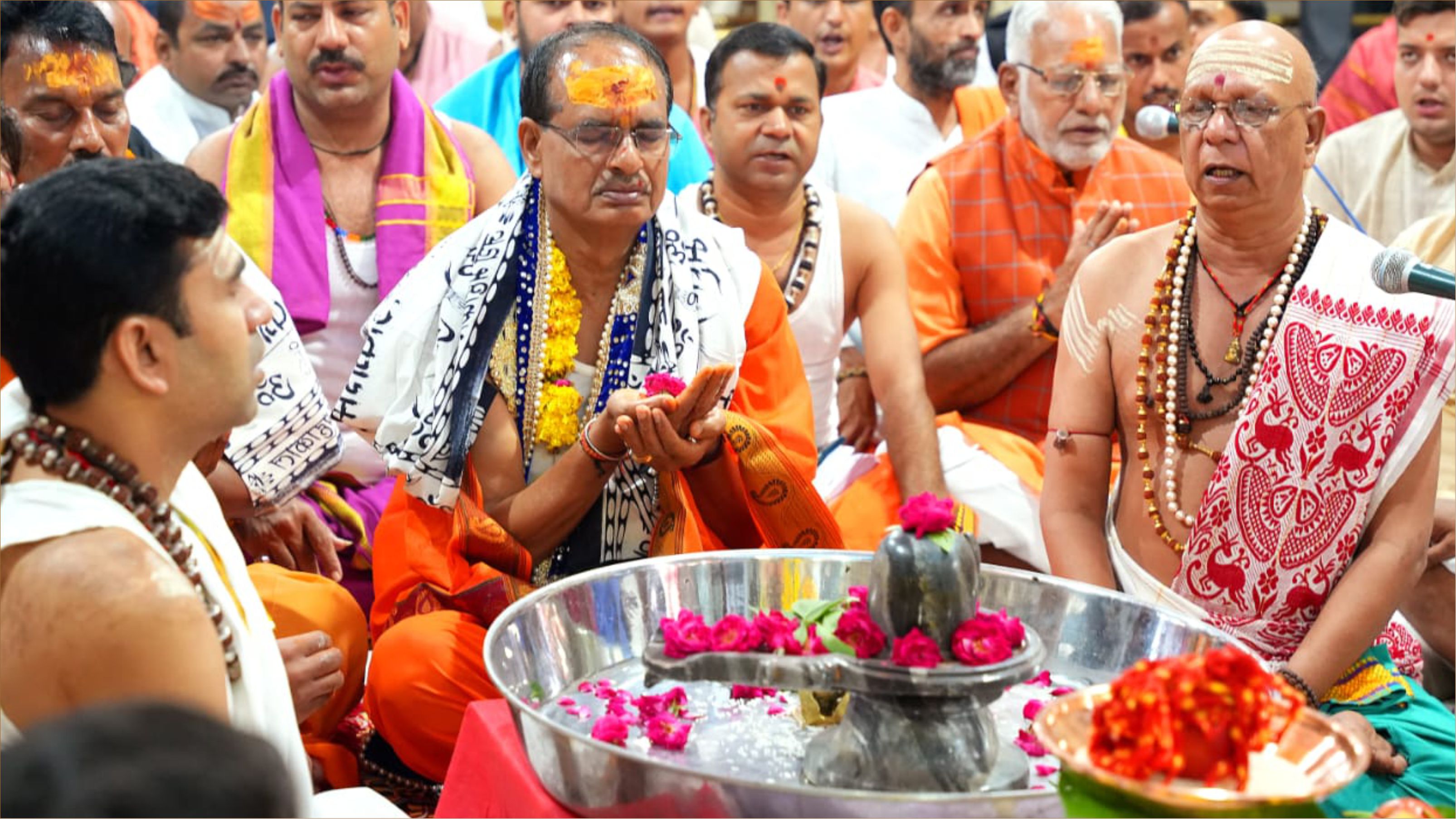
Shivraj Singh Chouhan is not only an able administrator but also a true people's leader whose soul is deeply rooted in Indian culture, traditions, and eternal values. His personality reflects not just the image of a politician but also that of a Karmayogi, a devotee, and a seeker of Sanatan Dharma. He did not confine governance merely to development; instead, he considered culture as the very core of life and worked to revive it. Under his leadership, Madhya Pradesh has emerged as a state where devotion and development, tradition and technology, faith and infrastructure - walk hand in hand. From preserving sacred sites to celebrating festivals as grand social events, from reviving folk traditions to weaving cultural values into education and daily life - every step reflects Shivraj Ji's deep conviction that 'culture' is the true soul of India. He has demonstrated that politics is not merely about power, but also a medium to connect with the nation's spirit. Under his leadership, culture has not remained a tale of the past, but has become the pride of the present and an inspiration for the future.
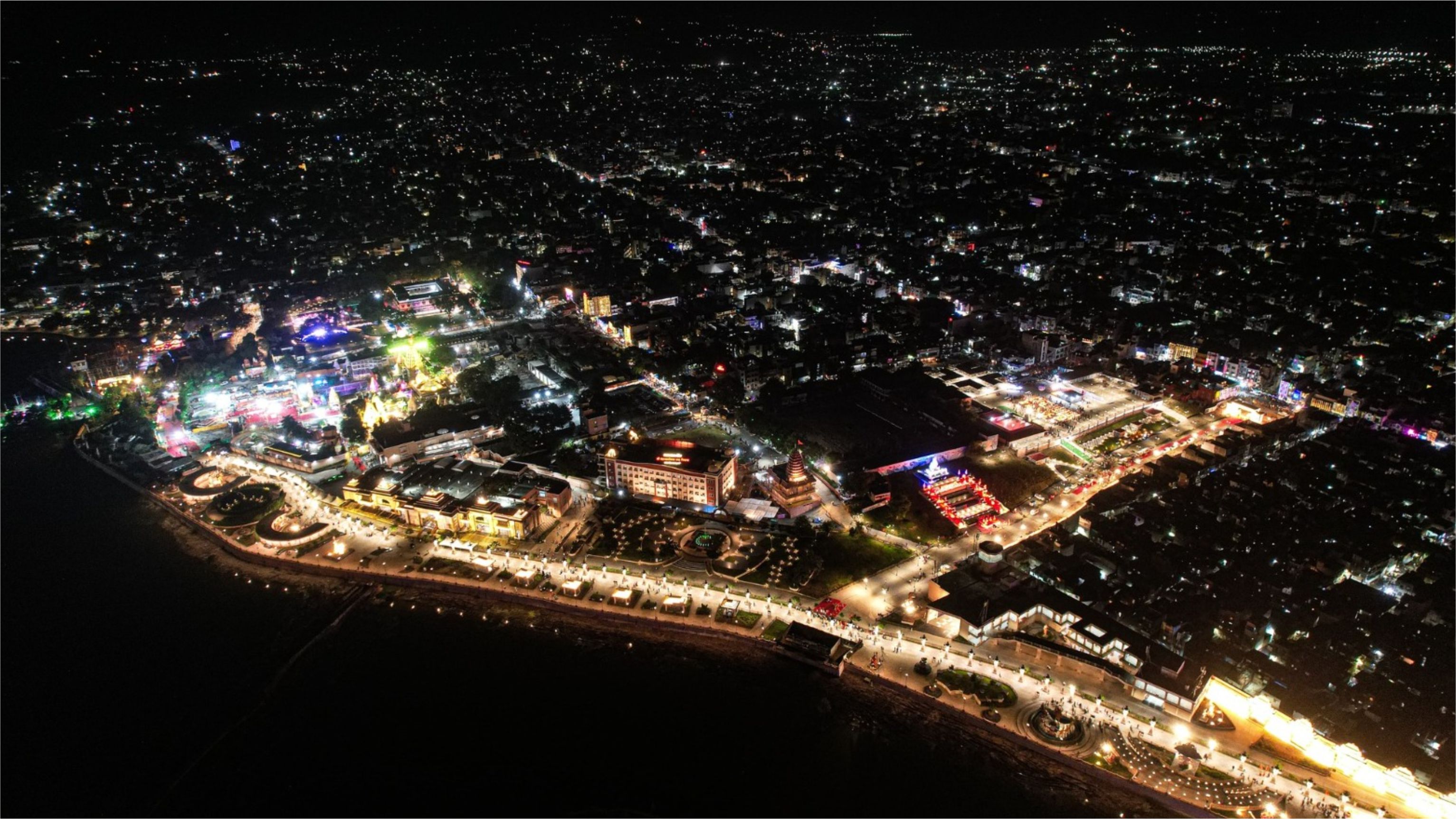
Shri Mahakal Lok
The most magnificent symbol of Shivraj Singh Chouhan's cultural vision is Shri Mahakal Mahalok, constructed in two grand phases. Inaugurated on 11 October 2022 by the Hon'ble Prime Minister, this project not only placed Ujjain firmly on the global map of spiritual tourism but also gave a renewed identity to the cultural soul of Madhya Pradesh.
A historic chapter was added to this cultural pilgrimage during Shiv Jyoti Arpanam-2023, when 18,82,000 lamps were lit on the sacred land of Baba Mahakal, creating a world record.
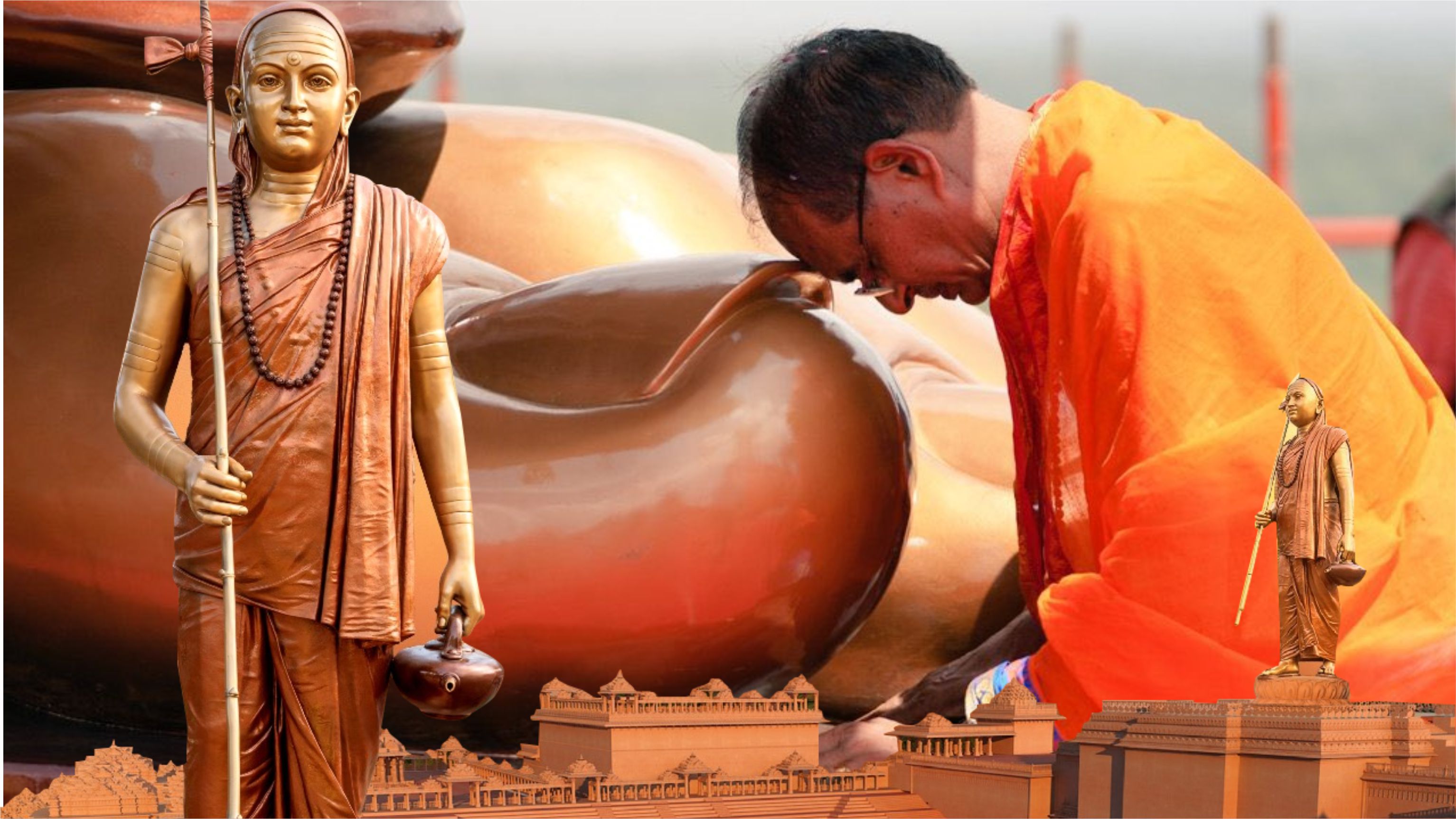
Ekatma Dham
On the sacred banks of the Narmada, in the holy city of Omkareshwar, stands the divine site where Adi Shankaracharya received initiation and self-realization from his Guru, Govind Bhagavatpada, weaving India into the eternal thread of Advaita Vedanta.
The 108-feet tall Statue of Oneness and the grand Advaita Lok complex embody this vision. This monumental project, with an estimated cost of around Rs. 2000 crore, stands as a testimony to Shivraj Singh Chouhan's visionary resolve.
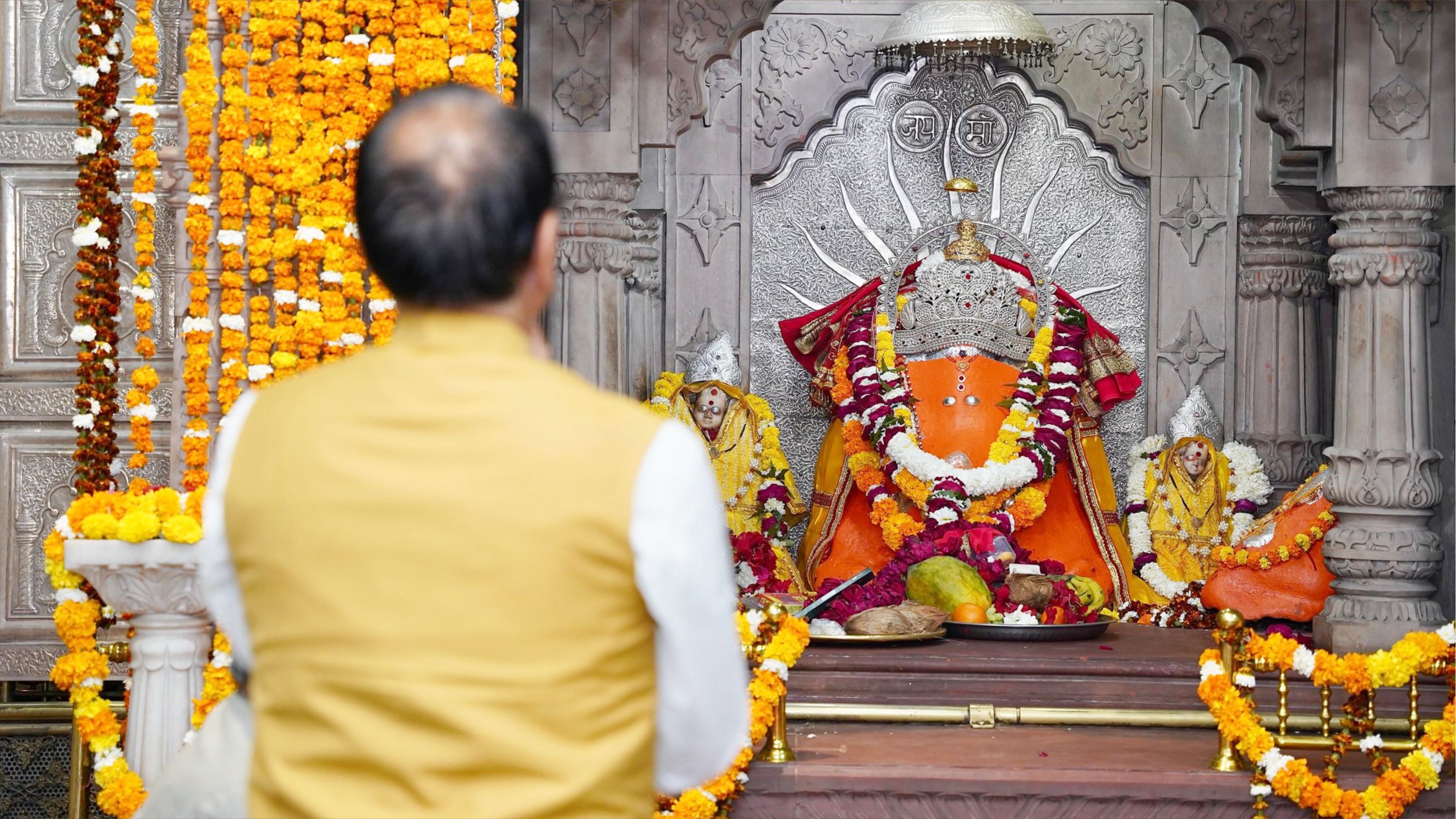
Salakanpur Devi Lok
In the Sehore district of Madhya Pradesh, the sacred shrine of Salakanpur Devi Dham is being transformed into a grand spiritual and cultural complex under the vision of Shivraj Singh Chouhan.
The Maa ki Paduka Yatra was launched on 17 May 2023, reaching village after village. Sacred soil from 52 Shaktipeeths across India was brought, making this Devi Lok a true embodiment of the collective faith of the entire nation.
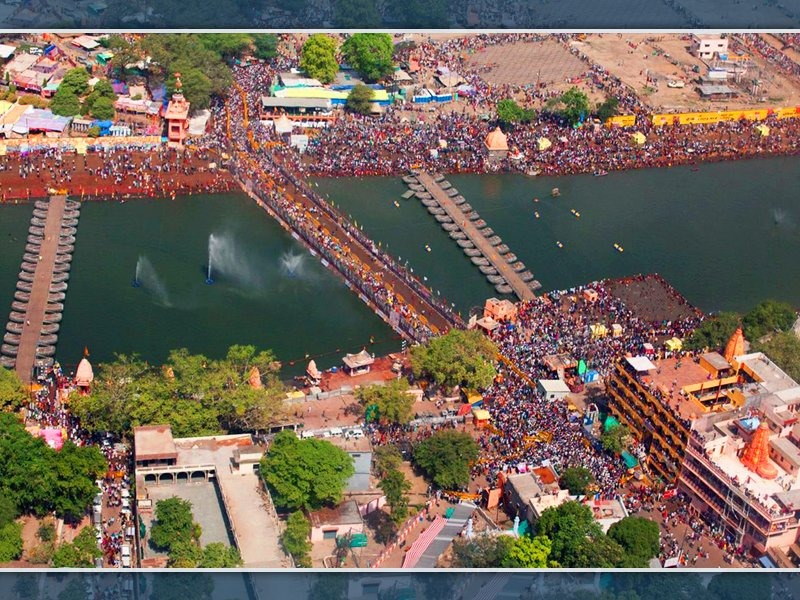
Simhastha 2016
Simhastha 2016 was not merely a festival of faith and devotion, but also a unique example of the visionary leadership, excellent management, and cultural perspective of Chief Minister Shivraj Singh Chouhan.
Held in Ujjain from 22 April to 21 May, this grand Kumbh witnessed participation from more than 80 million devotees for the first time in history, making it the largest cultural gathering ever organized.
Cultural Revival Through “Lok” Development
Shivraj Singh Chouhan has ushered in a historic stream of cultural revival in Madhya Pradesh. With a visionary approach, he conceived the idea of developing major religious, spiritual, and cultural sites as “Lok” - living spaces that embody a remarkable fusion of tradition and modernity. The development of these sites is not limited to strengthening centers of faith alone; it also connects them with tourism, cultural consciousness, and economic empowerment.
Major Cultural and Spiritual Sites
Formulation of Yoga Policy
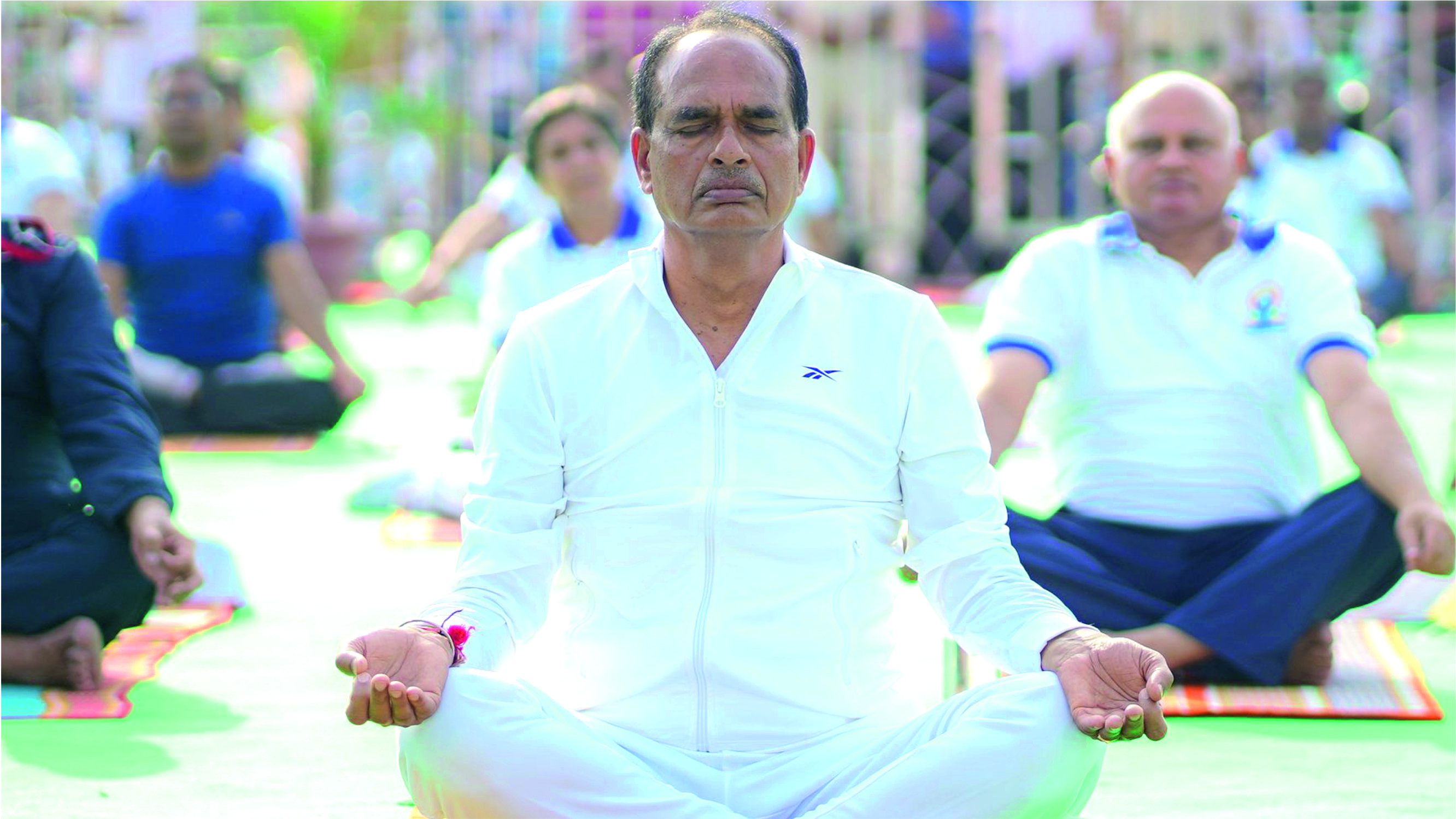
Shivraj Singh Chouhan, considering Yoga as a priceless treasure of Indian culture and tradition, took a historic step to bring it to every household. With this vision, the state introduced a Yoga Policy, and established both the Yoga Council and the Yoga Commission to institutionalize Yoga and promote it on a wide scale. Since ancient times, Yoga has held a special significance in Indian life, harmonizing body, mind, and soul to offer a sense of completeness. To pass on this cultural strength to the younger generation, the government integrated Yoga into the curriculum of educational and training institutions. This initiative helps instill health, discipline, and spiritual strength among the youth. This effort is not only a foundation for building a healthier society but also an attempt to re-establish India's great tradition and cultural identity on the world stage.
Cow Conservation
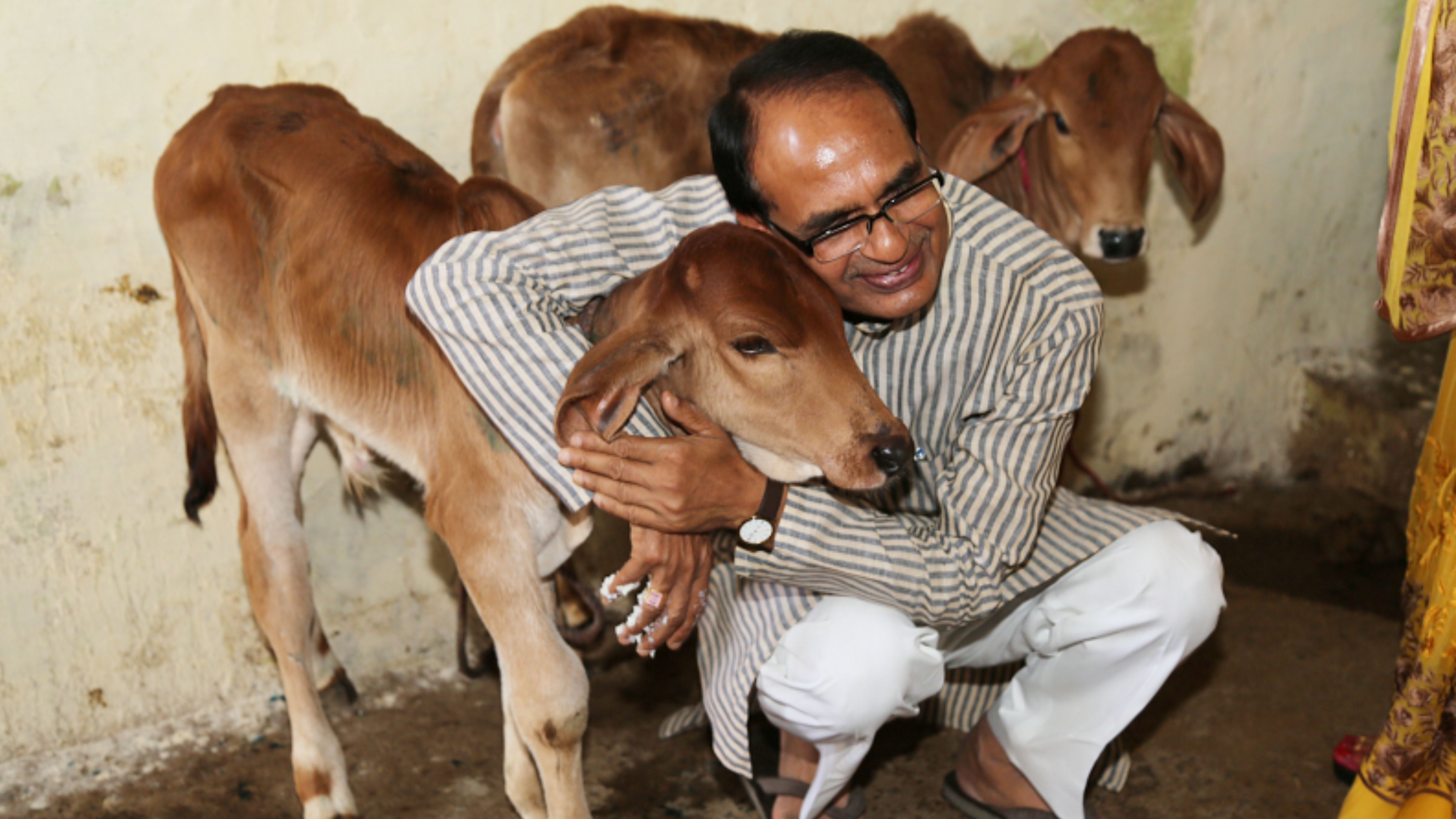
Chief Minister Shivraj Singh Chouhan, recognizing the importance of the cow in Indian culture, turned cow protection and promotion into a cultural and social movement in Madhya Pradesh. In Indian tradition, the cow is revered as “Gau Mata,” and references to her are found repeatedly in the Vedas, Puranas, and other scriptures. Strengthening this glorious tradition, the state government imposed a complete ban on cow slaughter and implemented the Cow Protection Act. To promote animal welfare, the Nandi Shala Yojana was launched, and grants, facilities, and land were provided to cowsheds (gaushalas). To make cow protection more effective, a dedicated ambulance service was introduced for the treatment of sick and injured cattle. By calling the toll-free number 1962, a mobile veterinary ambulance would immediately reach the location. A separate ambulance was provided for every block, and a total of 406 ambulances were allocated, each staffed with veterinarians and para-veterinary personnel. This initiative fulfilled a promise made in the election manifesto. To encourage natural farming, the government started providing financial assistance of ₹900 per month to cattle rearers and released installments to 22,000 farmers. Additionally, to promote cattle rearing in tribal areas, a subsidy of up to 90% was given for the purchase of two cows. This comprehensive initiative was not just about cow protection but also about strengthening Indian culture and faith, ensuring that the spirit of tradition, compassion, and sensitivity remains alive for future generations.
Maharshi Patanjali Sanskrit Institute
Shivraj Singh Chouhan established the Maharshi Patanjali Sanskrit Institute to connect students with Indian culture and traditions. At this institute, students up to the secondary level are taught diverse subjects such as grammar, astrology, and the Vedas.Taking this cultural initiative forward, the government also established Maharshi Panini Sanskrit University in Ujjain to promote Sanskrit studies at higher education levels.
Through these institutions, Madhya Pradesh is not only reconnecting students with their cultural roots but also inspiring future generations with Vedic knowledge and ancient Indian scriptures. This initiative is a historic step towards enriching the state culturally and keeping alive India's timeless tradition of knowledge.
Trusts for Temple Management
To strengthen the faith and spiritual heritage of the state, Shivraj Singh Chouhan initiated significant reforms in the systematic management of temples. Temples are not just centers of worship, but also symbols of Indian culture, tradition, and social unity.
With this vision, the government established special trusts for the management of important temples like Chitrakoot, Omkareshwar, Orchha, and Rewa, modeled after prominent shrines such as the Mahakal Temple and Khajrana Ganesh Temple. These trusts have ensured transparent, organized, and devotee-friendly temple management, while also boosting religious tourism. This initiative has not only strengthened spiritual faith but also elevated the cultural identity and spiritual pride of Madhya Pradesh.
Narmada Parikrama Path
For Shivraj Singh Chouhan, the Narmada River - the lifeline of Madhya Pradesh - has always held a deep emotional bond, not just as a leader but since his childhood. Growing up on its banks, he revered Narmada as a motherly figure and sacred presence. With this devotion, he envisioned Narmada not merely as a river but as a symbol of faith, culture, and life force for the state and the nation. To preserve and promote its significance, the Shivraj government undertook several historic measures, the most notable being the construction of the Narmada Parikrama Path.
The purpose of this initiative is to provide convenience to devotees performing the sacred circumambulation of the river and to highlight the religious, mythological, and historical importance of sites along its banks. This effort not only honors the devotion of millions but also establishes Narmada on the global stage as a symbol of India's cultural heritage and spiritual strength.
Narmada Seva Yatra
A Grand Journey of Faith, Environment, and Development
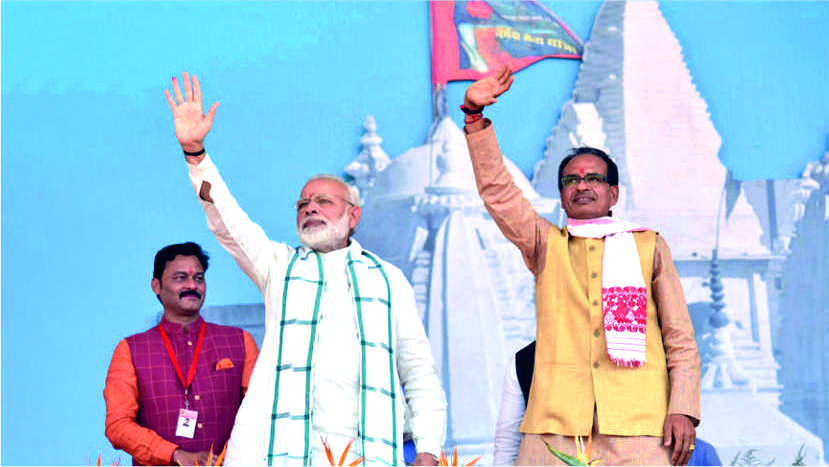
The Narmada is the lifeline of Madhya Pradesh, quenching the thirst of more than 30% of the state's population, nourishing fertile lands along its banks with grains, fruits, and flowers, and providing energy and prosperity through its waters. Over time, however, reckless deforestation and pollution weakened the river's life-giving flow.
Witnessing this decline, Chief Minister Shivraj Singh Chouhan took a solemn pledge to serve Mother Narmada and launched the historic 3,344-kilometer-long, 144-day “Namami Devi Narmade” Seva Yatra from December 11, 2016, to May 11, 2017.
This grand journey awakened collective consciousness across the state, reminding people that Narmada is not merely a river but the very source of faith, culture, and life.
During the yatra, Chouhan himself participated in tree plantation, pledged to make riverside villages open-defecation free, and initiated the establishment of sewage treatment plants to keep Narmada pollution-free. The journey was religious, as it reflected devotion and reverence toward Mother Narmada; it was environmental, as it promoted afforestation, water conservation, and pollution control; and it became a mass social movement, as millions of people joined hands to protect the sacred river.
Following the Narmada Seva Yatra, on the occasion of Madhya Pradesh Foundation Day (November 1), Chief Minister Chouhan also undertook the two-month-long “Madhya Pradesh Vikas Yatra,” which carried forward the message that just as Narmada Seva ensures the security of life and environment, the Vikas Yatra paves the way for the state's progress.
Thus, the Narmada Seva Yatra was not merely a government campaign for Chouhan but a sacred yajna of devotion and service to Mother Narmada, which united environmental protection and development, giving a new direction to the collective consciousness of Madhya Pradesh.
When Development Meets Culture
The present times demand not only development but also the preservation and promotion of culture. While serving as the Chief Minister of Madhya Pradesh, Shivraj Singh Chouhan understood this need and endeavored to align development with the intrinsic and natural rhythm of society. Under his leadership, numerous significant initiatives were undertaken to enrich the lives of the general public in the light of Indian tradition and culture. He activated various departments to view culture in harmony with nature and to promote it, keeping cultural references alive through several schemes. Considering Indian tradition and culture as the soul of development, the Madhya Pradesh government has continuously strived for cultural upliftment and self-respect. Under Shivraj Ji's guidance, efforts to preserve cultural pride, heritage, and dignity in the state received a new direction.
Through his successful leadership, traditional Indian culture has been integrated into development programs, providing a strong foundation for the preservation and promotion of cultural heritage. As Chief Minister, Shivraj Singh Chouhan gave utmost priority to respecting Indian culture and religious traditions in the state. Accordingly, the government declared holidays on the occasion of Pratipada and also ensured holidays in schools during religious festivals.
As per the announcement made in the Assembly on 21 July 2009, the Diwali holiday was extended from 3 days to 6 days. Similarly, holidays were declared on the occasions of Pitru Moksha Amavasya, Durga Ashtami, and Maharana Pratap Jayanti, inspiring youth with valor, pride, and a sense of cultural belonging.
To further strengthen respect for culture and tradition, changes were made in the Madhya Pradesh curriculum, including teaching stories of Maharana Pratap's bravery and valor in schools, as well as incorporating the character and ideals of Lord Parshuram. These initiatives aim to instill courage, heroism, and pride in Indian culture among the younger generation.





